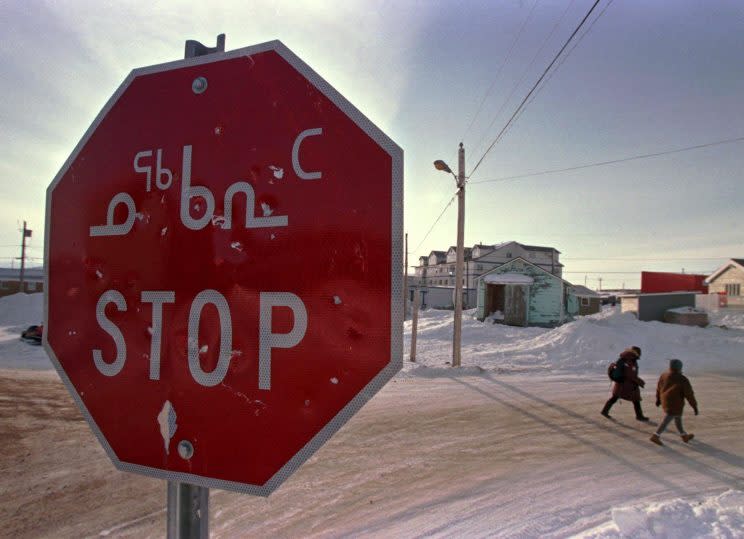Indigenous language protection at 'crisis' point ahead of feds' promised action, group says

Justin Trudeau’s promise of a bill to protect Indigenous languages would be welcome but must properly fund preservation efforts in order to be effective, says a B.C. group working with threatened languages in the province.
The prime minister said in late 2016 that his government would present an Indigenous Languages Act, though he hasn’t given any specifics as to how it would work to protect Canada’s 60 surviving Indigenous languages.
Such a bill was recommended by the Truth and Reconciliation Commission report, which Trudeau has said will be implemented in full.
PHOTOS: For Inuit women, tattoos come out from the past and ink to the present
Adults shamed from speaking Indigenous languages hold key to revival, survival
Support from the federal government would be a boon to efforts already underway through provincial and territorial governments, Indigenous groups, universities, and other institutions, says Tracey Herbert, CEO of the First Peoples’ Cultural Council, a B.C. Crown corporation tasked with revitalizing Indigenous culture.
“It’s great to hear that they’re looking at legislation, but there really needs to be an immediate investment in language preservation,” Herbert told Yahoo Canada News. “And Indigenous people know what’s needed and the work that has to be done.”
About 213,000 people consider an Indigenous language their first language, according to the 2011 census results, and that number is dropping. Of the 60 or so Indigenous languages surviving in Canada, Inuktitut is the most commonly spoken, followed by Cree and Ojibway. But even the most common of those languages risks disappearing as elders pass away and younger people do not learn the languages at home or in school.
About a decade ago the First Peoples’ Cultural Council shifted its preservation efforts to focus on language immersion in order to create new fluent speakers of British Columbia’s 34 Indigenous languages and 61 dialects.
Across Canada, Indigenous groups themselves are also actively working to promote the preservation of their languages. Immersion efforts similar to those undertaken by the First Peoples’ council are used in schools and by Indigenous groups across Canada.
Publishers like Theytus Books and Inhabit Media release books in Indigenous languages like Okanagan.
And individual activists also work to make Indigenous languages more visible and widely used. For example, Jacey Firth started the Facebook group, Gwich’in Language Revival Campaign, and the hashtag #speakgwichintome after being inspired by a similar campaign started by a young Sami man (an Indigenous peoples native to Northern Europe). The Facebook page is now a resource for people who want to learn more about Gwich’in and share what they already know.
Other countries have offered a helpful template for the work that can be done in Canada. An Inuit delegation visited Wales earlier this month to learn about language preservation from the Welsh after being invited by the Prince of Wales, CBC reported. Canada can learn about language preservation from areas as diverse as Sweden, Hawaii, New Zealand, Australia, and California, Herbert says.
And the Internet makes it possible to connect with other Indigenous people around the world who are fighting to preserve their own languages, and to develop and use tools that make it easier to use and learn Indigenous languages that don’t use the Roman alphabet. The Government of Nunavut and the NGO Pirurvik Centre developed an Inuktitut keyboard for computers and mobile devices, for example, and the federal government has announced a typeface for Canada’s 150th anniversary that includes Indigenous languages.
Considerable harm was already done to Canada’s Indigenous languages through its residential school system, and with elders passing away, the need for preservation is urgent, Herbert says.
“It’s a crisis in British Columbia right now,” Herbert said. “We need to act now. We need to have funding roll in, support specific languages, support specific work in the community.”


